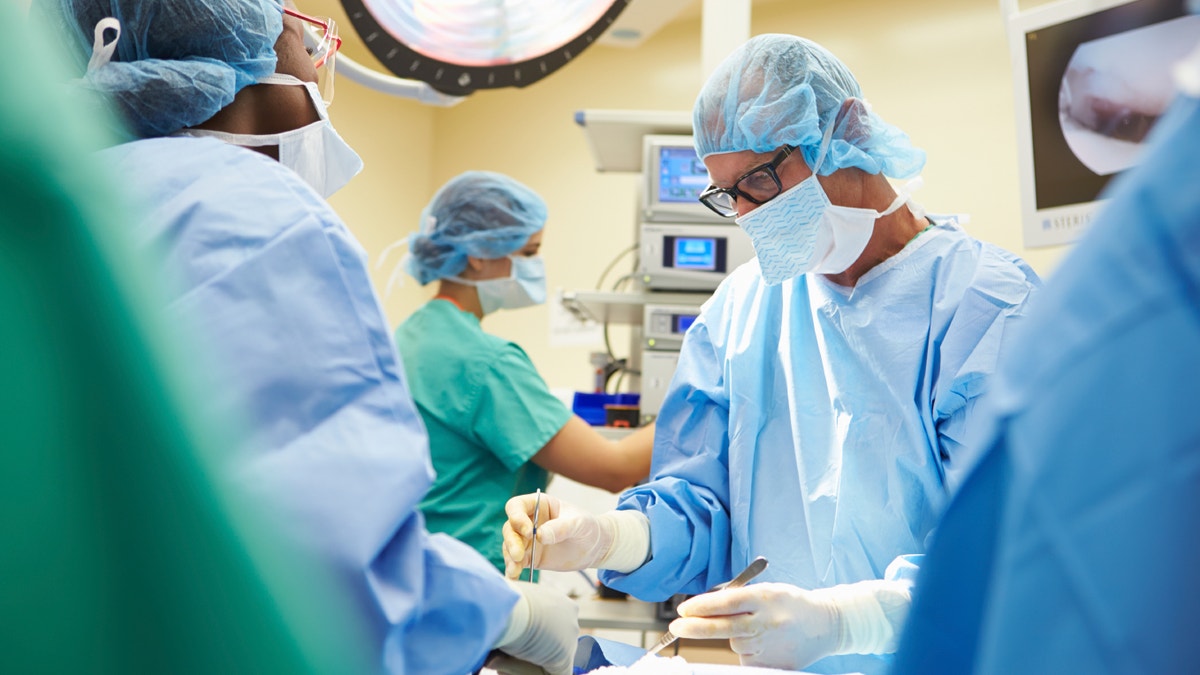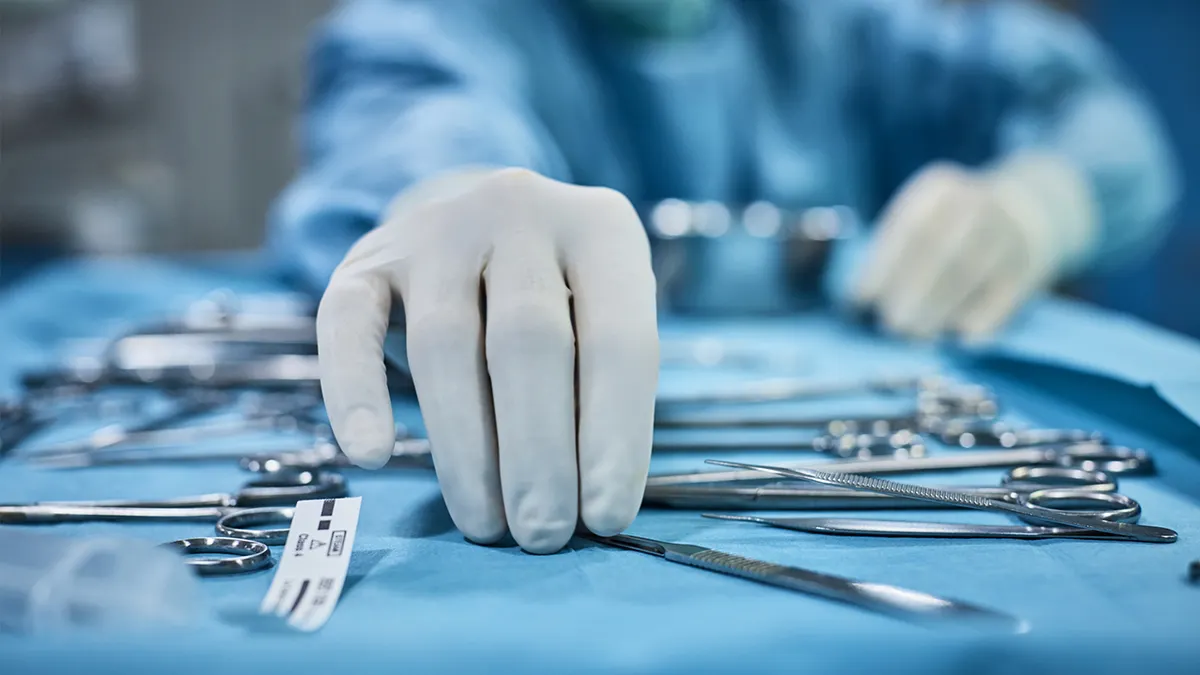Gender-affirming care sparks concerns about patients' safety
Fox News medical contributor Dr. Marc Siegel explains the risks of gender-affirming care for young Americans.
A recently conducted study that evaluated young patients after they underwent double mastectomies as they transitioned into becoming male indicates that their quality of life drastically improved.
The study from Northwestern Medicine, published in The Journal of the American Medical Association — in JAMA Pediatrics — in September, compared two groups of patients ages 13 to 24. One group had the procedure, while one group did not.
Their findings showed that after three months, the group that had what is commonly referred to as "top surgery" experienced less chest dysphoria, compared to the group that did not have the surgery.
"Top surgery is associated with improved chest dysphoria, gender congruence, and body image satisfaction in this age group," reads a summary of the report.
Some have taken issue with the findings — saying that a sample study of only three months is not enough time to determine if these young patients experienced less dysphoria after surgery.

Some say that a sample study of only three months is not enough time to determine if young patients experienced less dysphoria after the "top surgeries" they underwent. (iStock)
"I don't think it [the study] should shape clinical care because three months after an operation, people can easily feel happy because complications haven't happened yet," said Stella O’Malley, a psychotherapist and founder of Genspect.
The international nonprofit group Genspect advocates for "exploratory therapy" in support of gender dysphoria.
"What we need to know is how do they feel after a year, and how do they feel after five years, and how do they feel after 10 years? Then you've got something statistically significant, and you've got some serious data that you can actually shape your clinical care around."
"What we need to know is how do they feel after a year, and how do they feel after five years, and how do they feel after 10 years?"
"Sadly, the affirmative model is only 10 years old, so we don't have any long-term data," said O'Malley. "We don't know what the impact of a mastectomy is on a 14-year-old. We don't know what they're like when they're 24 because there isn't any data to show us."
When reached for comment by Fox News, officials for Northwestern Medicine stood by the findings of their study.
"We provide comprehensive and affirming medical treatment that honors every individual, including those who are transgender and gender-diverse," the statement from Northwestern Medicine says.

Surgery istock photo (istock)
"This peer-reviewed study was accepted and published by one of the world’s leading medical journals," the statement continues.
"We stand with our patients and families, with members of the transgender and gender-diverse community and with our physicians and employees who provide gender-affirming care."
‘I was only a kid’
It was a year after her top surgery when Chloe Cole, 18, of Central California, says she regretted her decision.
"I was only a kid. I didn't really have the mental faculties or the life experience to be able to really understand what I was doing to myself. And they didn't even give me, like, a full picture of what might happen to me," Cole said in an interview with Fox News.
Cole was 12 when she began socially transitioning from female to male.

Chloe Cole was 13 when she started taking puberty blockers and hormones to begin transitioning her gender to male. (Courtesy of Chloe Cole)
At 13, she started taking puberty blockers and testosterone. Two years later, she had a double mastectomy.
"I was kind of given the impression that I would be mostly fully healed by a year to about a year-and-a-half," she said. "Well, it's been well over two years, and I've actually had some regressions in the healing process."
"I was kind of given the impression that I would feel happier by transitioning and become my real self and feel more whole as a person."
Chloe says before her surgical transition, she genuinely believed that she was a boy trapped in a girl’s body, with a strong desire to form it to match the idea she had of herself — but her mental well-being did not improve in the months and years after her surgery.
"I was kind of given the impression that I would feel happier by transitioning and become my real self and feel more whole as a person," she said.
"But not only did I have some comorbid mental health issues, I also started to develop some over the course of my transition. After two years on testosterone, I was diagnosed with depression, anxiety — and I struggled with suicidal ideation."
TRANSSEXUAL ACTIVIST CRITICIZES TRANS MOVEMENT FOR ACCELERATING 'FAR TOO FAST'
Cole says that after the surgery, she had initially felt happy — but after dealing with the post-operation process, she became upset over the loss of her breasts.
"I was doing this really adult thing as a kid. I took away opportunities for myself as an adult."

Seen here before his transition, Noah Boutilier, 29, says that it was a long time coming when he had his top surgery two years ago at the age of 27. (Courtesy of Noah Boutilier)
Dr. Erica Anderson, a California-based psychologist, says that any sort of invasive surgery can be traumatic.
"Historically, when people who have had gender-affirming surgeries have been surveyed. They’re very happy and there are very few who regret. And these are studies generally with adults," said Dr. Anderson, who has also transitioned herself.
"Not all providers are using the standards that have been set up to be cautious and affirming of young people in their gender."
"The concern I have currently, which I've been expressing, is that if a young person doesn't get all the support that ideally they should have, and they are rushed through the process, that they don't process the decision in a mature way."
Anderson says that she’d like to see the standards of care be observed, with comprehensive evaluations of all aspects of a child’s life before major decisions like top surgery or use of hormones.

"We used to require people to be on hormones for a minimum of a year before they would be eligible or a gender-affirming surgery," one California-based psychologist told Fox News. (iStock)
"We used to require people to be on hormones for a minimum of a year before they would be eligible or a gender-affirming surgery," she says.
"I don't think that's being observed any longer or required. Not all providers are using the standards that have been set up to be cautious and affirming of young people in their gender."
CLICK HERE TO SIGN UP FOR OUR LIFESTYLE NEWSLETTER
Others who made their transition are grateful to have had their gender-affirming surgery.
Noah Boutilier, 29, of Florida, says that it was a long time coming when he had top surgery two years ago at the age of 27.
"For me, it was the beginning of a new life," he said. "I waited 10 years into my transition to get my top surgery. The day I got it, I felt like I had always had it. I forget sometimes that I've had it, but it feels like this has always been my body, which is crazy to me."
CLICK HERE TO GET THE FOX NEWS APP
"Finally, I was home in my vessel. Finally, I could see me. When I looked in the mirror, I didn't see a stranger."
Fox News' Perry Chiaramonte contributed reporting to this story.









































